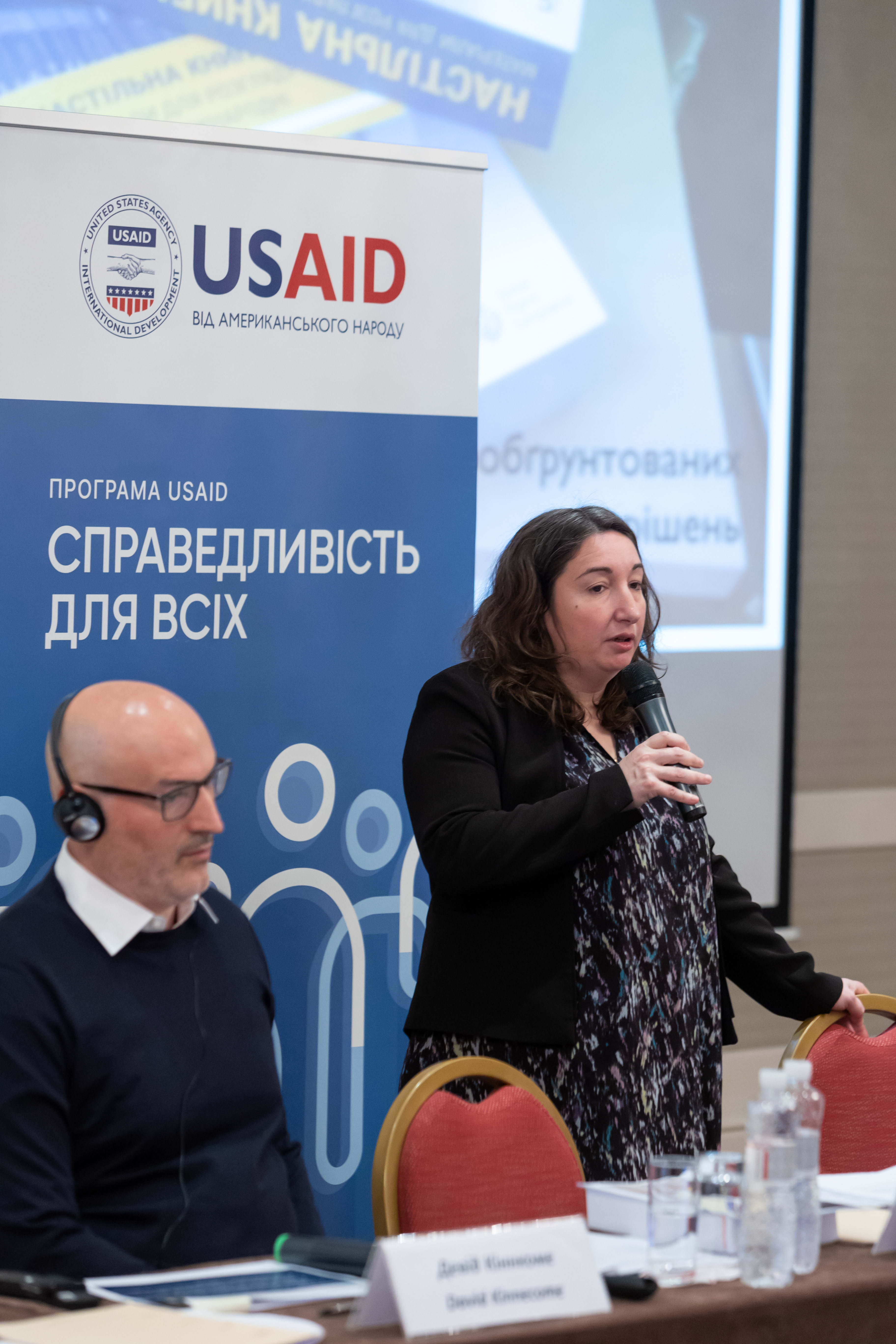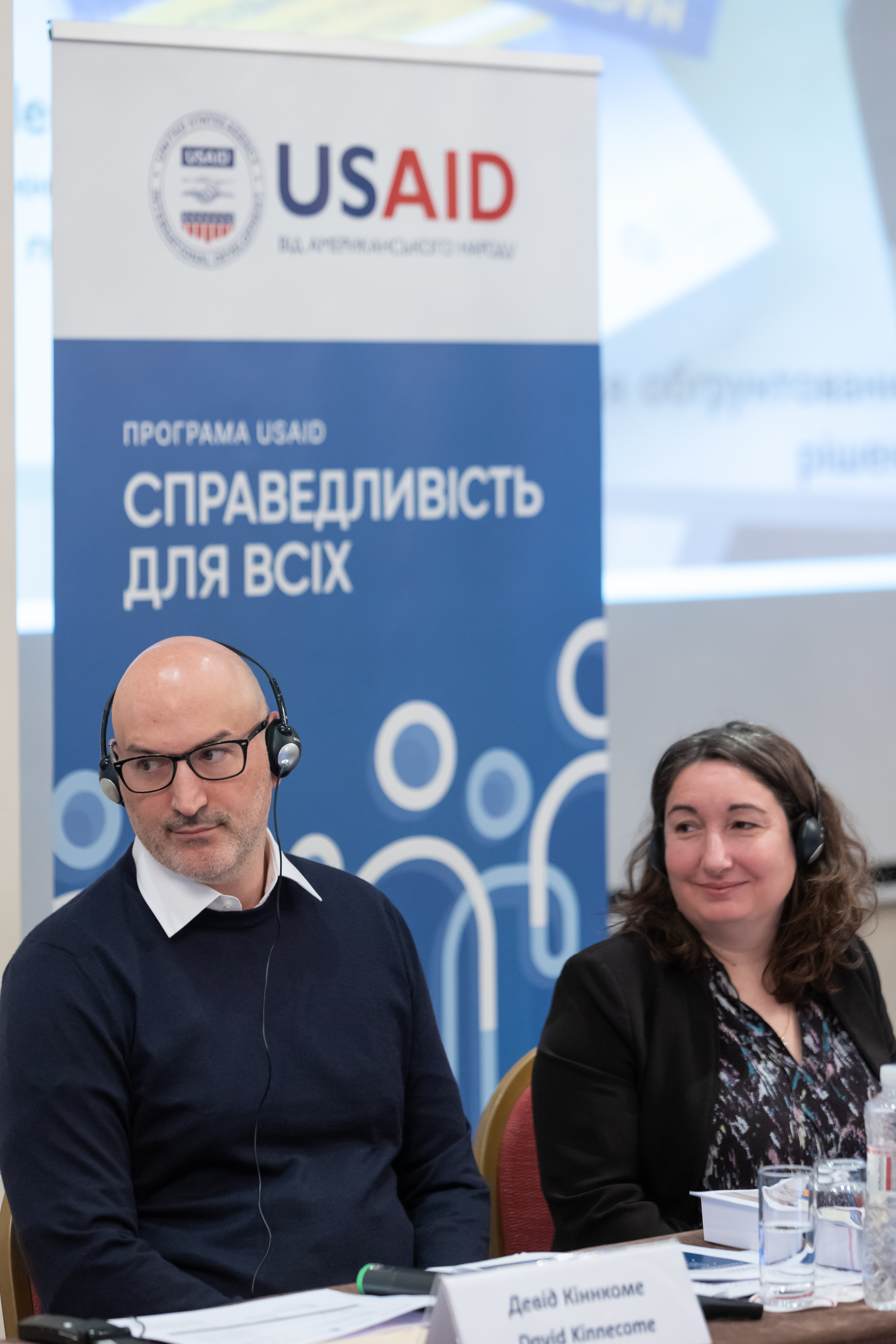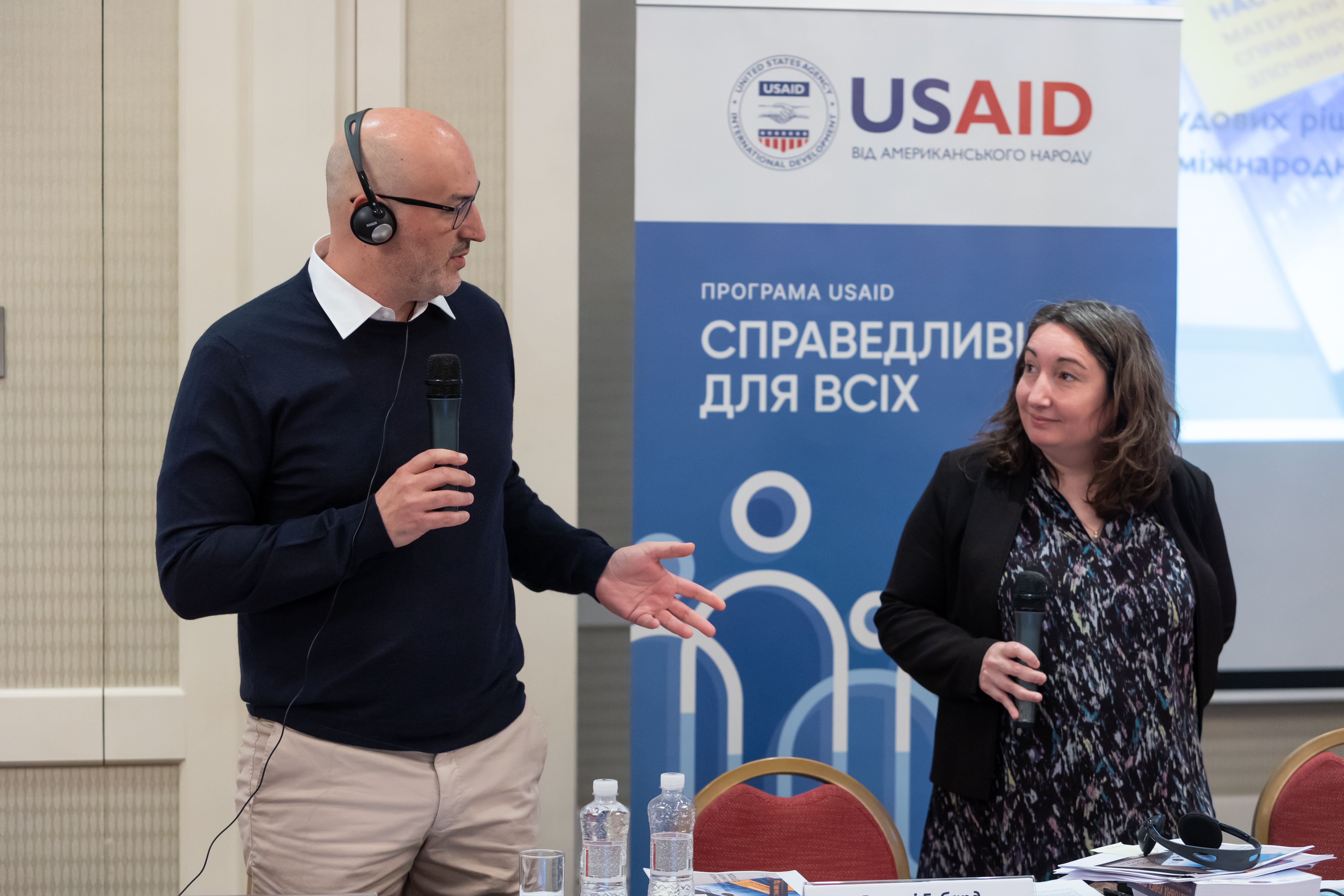Overview
The conflict in Ukraine has impacted all levels of society in fundamental ways. To assist in addressing emerging challenges, the Dutch Ministry of Foreign Affairs has established the program “Restoring Dignity and Justice in Ukraine”, implemented by the International Development Law Organization, to provide relevant support and strengthen the capacities of various parties dealing with international crimes in Ukraine.
As part of this initiative, UpRights, the Hague Academy for Local Governance and the T.M.C. Asser Instituut collaborated with the Ukrainian High School of Public Governance to develop a transitional justice training to assist Ukrainian civil servants in responding to harms arising from the conflict. The program was created in response to a demand by Ukrainian civil servants to better understand transitional justice and its role in supporting the provision of government services.
The online training includes six modules focused on the fundamentals of transitional justice and its potential to support local government working in de-occupied communities throughout Ukraine. To date, the training has been taken by close to a hundred civil servants and has led to follow up workshops focused on specialized topics including compensation and reparations, working with victims, sexual and gender-based violence and the restoration of public services in de-occupied communities. Encouraged by strong engagement and concrete outcomes, the implementing partners intend to deepen their collaboration and extend the reach of the program in 2025, ensuring it continues to meet the evolving needs of the Ukrainian society.
Activities
In early 2024, a comprehensive needs assessment, which included interviews with government officials, civil society representatives, international experts, and academics, set out challenges faced by civil servants and opportunities for transitional justice practices to support their efforts. The assessment found that while criminal accountability was often the primary focus of attention, government actors needed support to address other challenges arising from the conflict including reparations, reconciliation, the restoration of public services, mistrust in returning authorities and the conditions of victims and IDPs.
Following this assessment, a series of online modules was developed to provide training on the fundamentals of transitional justice and its specific application in de-occupied communities. Building upon this initial phase, in May 2024, 16 Ukrainian civil servants from national, regional and local government bodies took part in a weeklong training of trainers in The Hague, Netherlands to bridge connections between different sectors of government and build the capacity of the attendees to deliver the transitional justice training to their colleagues. As noted by a participant in The Hague, “We are all traumatized by the war. […] We are traumatized but we are ready to work on transitional justice, we are ready to speak about transitional justice and promote the concept further.”
The results of the week-long training of trainers were incorporated into a final training course of six modules, split between core transitional justice principles and practices and modules designed to support government working in de-occupied communities to restore public services, work with victims, and promote dialogue and reconciliation. These topics were selected in part based on feedback from participants: “My obligation would be to provide safety and avoid retraumatization, fostering equality, non-discrimination, and inclusion for victims.”
Outcomes
In September 2024, the online training was made available to all civil servants in Ukraine and, since the commencement of its rollout, close to a hundred civil servants have completed it.
Further, government officials, including some of whom attended the training in The Hague, have organized live workshops for hundreds of their colleagues which build on the online content. These workshops have been held in Kyiv and in de-occupied communities in the Kherson and Kharkiv regions. They have focused on a number of specialized topics including support to victims and IDPs, compensation for damages, approaches to preventing and addressing conflict-related sexual violence, and memorialization and documentation of the ongoing conflict.
Critically, the creation and implementation of the online course has produced increased cooperation between different sectors of government to implement transitional justice principles and practices into their daily work. As noted by a government partner, “There is a need for international cooperation that would allow us to reach all concerned groups, from high level officials to any other role in civil society institutions.” UpRights, The Hague Academy and T.M.C. Asser Instituut continue to support these workshops through the provision of tailored training and reference materials based on feedback from trainers and participants.
Next Steps
In 2025, this initiative is expected to grow further, with a natural continuation of the training through additional workshops and the development of a supplementary online module, which will be developed to expand on the current content following consultations with Ukrainian government officials.
Describing their hopes for the future, a participant stated that “we understand that the practical implementation of this training course will help improve the situation in our country. Each of the participants has their own experience which is of utmost importance to overcome the conflict in Ukraine and guarantee that similar situations do not take place anywhere else in the world.”
This project is part of the ‘Restoring Dignity and Justice in Ukraine’ consortium programme, focusing on advancing accountability for international crimes committed in Ukraine. The programme is funded by the Dutch Ministry of Foreign Affairs and is implemented by the International Development Law Organisation (IDLO), in partnership with the T.M.C. Asser Instituut, the Center for International Legal Cooperation (CILC), and the Netherlands Helsinki Committee (NHC). The project aims at institutional strengthening and capacity development needs of the key parties in Ukraine dealing with international crimes: prosecutors, police, judges, as well as journalists and civil society organisations. We believe that with the support of the international community, Ukraine can advance accountability for these crimes.





